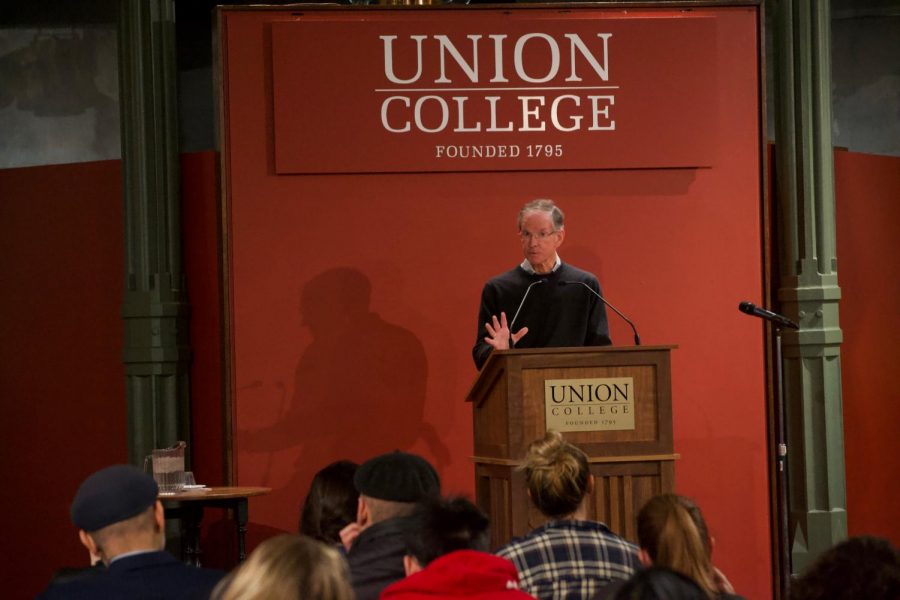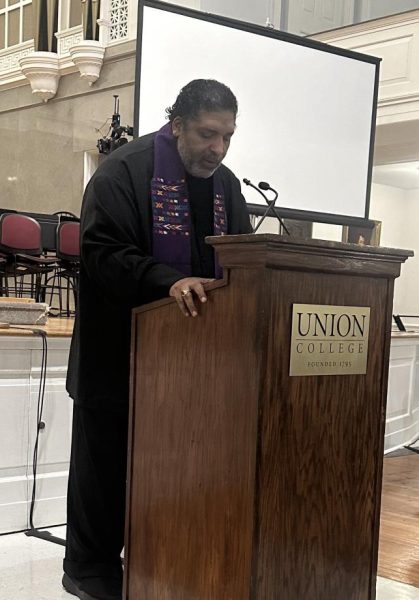Speaker Proposes Contemporary Approaches to Modern Education
January 22, 2019
Director of Philosophy and Education at Columbia University’s Teachers’ College David Hansen gave the inaugural talk in Nott Memorial for the Common Curriculum Speaker Series.
Hansen’s lecture was titled, “Contemporary Education in a Cosmopolitan Perspective.” The talk was aimed to answer questions about the philosophy of education and the role of teachers in the contemporary world.
Hansen started his lecture by defining a philosophy of education. “A philosophy of education is a constituted expression of values and educational purpose… it is like a compass that helps teachers stay true to their pedagogy… [and] is a wellspring of worldly, practical ideas.” According to him, a cosmopolitan education is “teaching students to be inhabitants of the world.”
The talk then turned to how teachers could become better educators.
“Teaching is a matter of being with students in an aware, concerned way,” Hansen said.
He then addressed how a teacher holds a cosmopolitan ethos to educate from a cosmopolitan perspective. “How do teachers teach? From, of, through and for the world.”
Hansen then clearly stated why there was a need for a new philosophy of education. “The contemporary world faces deeply unsettling realities; racism, nationalism, xenophobia… this world is a crowded and anxious world competing for resources under the auspices of capitalism.”
According to Hansen, these struggles are not only why there is a need for a contemporary philosophy of education but also why there is a need for a cosmopolitan philosophy of education.
A common theme of the talk was a rejection of nationalism in education, specifically educational policy.
“Most national education policy is narrow and is cultivating human capital for the labor market, not cultivating human beings,” Hansen said.
He then went on to state that while embracing individualism and self determination
is important amongst teachers.
He questioned whether or not “are teachers simply functionaries of the state, or are educators purposeful beings who should have more control over the classroom.”
The three elements of Hansen’s educational philosophy were the nature of a teachers presence, the nature of the environment the teacher keeps in the classroom and the nature of the curriculum that is being taught.
Hansen emphasized that the teacher’s presence, the way a teacher carried themselves, was of the utmost importance since it showed the students the teachers ethos and helped train good ethos.
To demonstrate this point, he gave an example of a New York City teacher he had met who refused to do standardized test preparation in their classroom, opting instead to have the students sit in the hallway, because “my classroom is for learning.” Hansen discussed the nature of a science curriculum and that it should “infuse wonder in its [Sciences] achievements with concern over its applications.”








